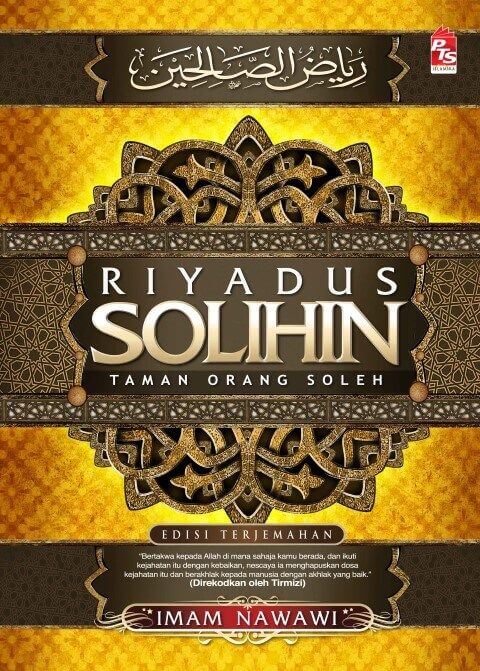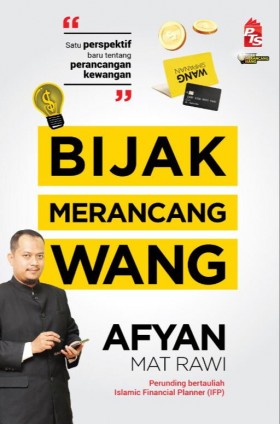COUNTRIES across the globe are making a mass
exodus from their current systems and hitting the path towards sustainability.
some are further down the path while others are just getting on it. Here in
Malaysia, there was a time when greenhouse gases and carbon trapping were the
coffee shop conversation of environmental scientists. These days everybody
seems to be talking about levels of emission, green vehicles, energy efficient
appliances and options in renewable energy. Property owners are weighing in the
option of installing photo-voltaic panels when not long ago the thought of
harnessing the sun's energy for electricity was very much futuristic. The
future has arrived and governments and peoples are acknowledging the fact that
sustainability is the way forward.
The word
sustainability did not always mean what it does today. Years ago
sustainability, especially in the plantation sector was linked to profitability
- the ultimate form of sustainability. Nonetheless, there were certain quarters
that were beginning to look at things differently and since the early 1990s
discussions, conferences and protocols calling for change and better awareness
were beginning to gain momentum.
These days, says
Syed Mahdhar Syed Hussain, Head of Plantation Quality & Safety Management
at Sime Darby Plantation (SDP), the word sustainability has three dimensions: profit,
which a company cannot lose sight of; people - the social obligation to the
community; and the environment.
"As a
plantation company, this concept of sustainability is relatively new to
us," he explains. "Not so long ago profitability was the ultimate
sustainability. now, we have realised that if we don't care about the people
and the environment, the consequences will hit us where it hurts most and we
will end up shooting ourselves in the foot."
"Malaysia
is on the right track with its green policies and new green laws. our prime
minister has made a `moving forward' target to reduce our greenhouse gas
emissions. This is a huge commitment, which is why the government is taking all
these steps to ensure that it is met," says Mahdhar.
Planning is
inevitable
Sime Darby
Plantation is the biggest public listed plantation company in the world and
therefore every activity it carries out has far reaching influences and
consequences.
The company has
a green roadmap to guide it on its way and set clear goals for its sustainable
journey. "We're a global company, so this roadmap guides how we operate
throughout the world. It includes our upstream and downstream operations,"
reveals Mahdhar. "It ensures that in whatever we do, we use our best
developed practices with regards to reducing greenhouse gas emissions. Even the
least we can do is initiate 3r programmes - reduce, reuse and recycle - in all
our operations worldwide."
The most
important element in getting any plan to really work is surely the people;
people who are passionate enough to see it through to the end. to ensure SDP's
sustainability goals are met, the company needs dedicated people, a structured
system and strategic planning.
A strategic
direction is critical, so that the company can see where it is going. This is
the biggest challenge, according to Mahdhar. Popular belief is that planning is
easy and free, but in reality it needs a lot of time, money, dedication and
passion.
Structure
Being faithful
to green technology and sustainability ideals is surely a challenge for any
company. What SDP has done is to take a three-tiered step to ensure that these
principles are adhered to: design and develop a methodology to maintain a system
that can be implemented and recognised worldwide, carry out continuous training
and enforce the system.
This system is
called the 3es and the 3ts. the first e is engineering, which is the design and
hardware of the system. next is to educate and enforce. The three ts are track,
translate and transform.
The company
carries out audits and validations to make sure that every aspect of the
business is run according to its ideals. A panel of experts tracks and analyses
any deviation and improves on it.
SDP's education
programmes are supported by external experts as diverse as tenaganita, the NGO
that protects migrant worker rights, the Sabah Forestry Department, and public
universities.
"All of
these policies, programmes and measures are crucial to our sustainability,"
says Mahdhar. "We cannot single out one as more important than the rest.
All of them - water management, pest control, reducing greenhouse gasses - are
crucial and interrelated and cannot be taken in isolation."
These policies
and measures extend to SDP's affiliates, partners and suppliers all over the
world, and are entrenched in the company's corporate governance. The businesses
and bodies SDP works with have all been positive about green practices along
with SDP.
"Most of
them share our view that green technology and sustainability are extremely
important for the business," says Mahdhar. "We are in the agriculture
businesses whether we like it or not, and if we don't care about the
environment we shouldn't be in this business."
Cleaning its own
house
Incorporating
green technology ideals and sustainability into its business model is certainly
a gargantuan task for any company, but it was something SDP chose to do because
`it was the right thing to do'.
"Sustainability
has a huge impact on the plantation business," says Mahdhar.
"Anything that can impact the environment and the climate will ultimately
affect us. The weather is what decides the quality and quantity of the yield,
so we cannot afford to be ignorant of the scenarios that affect the climate and
its ultimate importance to us."
Green technology
can mean many things, he continues, but what SDP is focusing on is renewable
energy that will reduce the company's carbon emissions, as well as reducing,
recycling and reusing its products and byproducts to prevent wastage. the
company is also beginning the process of modifying its machines in its mills to
use biodiesel instead of fossil fuels for electricity generation.
Even the
simplest steps make a difference - the company has initiated programmes on the
micro level to reduce usage of paper, printer ink, stationery, water, and
electricity in its offices, plantations and housing around the world. the Sime
Darby office in Wisma Guthrie, Damansara, for example, has a large tank on its roof
to harvest rainwater that is used in the building's toilets. The company set
down regulations on how to collect, store and dispose rubber tyres, and set
regulations against littering so that there is no rubbish strewn around the
estates.
"While we
are concentrating on the big things, we cannot lose sight of these small
day-today elements," says Mahdhar. Implementing these micro-level measures
was certainly full of challenges, the biggest being changing people's mindsets
and sorting out the logistics. People had to be educated about how to save,
reuse, and separate their garbage. Even the cleaners had to be educated about
how and why the garbage was separated into three bins so that they would
dispose of it in the proper way.
SDP conducted training
and education programmes and put up signs everywhere to initiate the change.
bearing in mind the company has more than 80,000 employees, this was a massive
undertaking.
"Changing
people's mindsets can be done, but of course it will not be done overnight,"
says Mahdhar. "And we must ensure that every avenue is covered.
Sustainable development is a holistic process and every detail makes up a
bigger picture. SDP's best developed practices have been formulated over the
past 40 years. These include zero burning of the crop to clear the land after
harvesting and recycling mill waste back into the system for water maintenance.
the estates do not use irrigation in their plantations relying instead on rain
and natural watersheds, so the company is keen on water management to ensure
natural water resources are not polluted.
Being a large
plantation company and a key player in the sector comes with accountability and
a sense of responsibility about its carbon footprint.
Carbon footprint
is not just about how much carbon the company causes to be emitted into the
atmosphere, explains Mahdhar. It is the total carbon emissions plus carbon
sequestration (the amount of carbon absorbed by trees) and the carbon stock
(the amount of carbon the company has on the ground).
In a palm oil
estate, one hectare of trees can contribute up to 21.3 tonnes of oxygen
annually. Palm oil is not an annual crop - the trees will grow for 25 years
before replanting, so carbon sequestration and oxygen contribution is a big
deal.
As for
emissions, the biggest component of a plantation is fertiliser. SDP uses
nitrogen-based fertiliser, which contains nitrous oxide. One kilogramme of
nitrous oxide is equivalent to 313kgs of carbon dioxide when evaporated into
the atmosphere. Another component in a plantation is methane from effluent. One
kilogramme of methane is equivalent to 21kgs of carbon dioxide in the
atmosphere. The use of these two important components of a plantation can lead
to massive amounts of greenhouse gas emissions.
SDP has taken
steps to reduce and avoid emissions and sequestration through entrapment:
trapping methane, cleaning it and feeding it through a gas engine to produce
energy. These gas engines are giants; one 60 tonne palm oil mill can produce
1.2 megawatts of electricity. The electricity produced by the gas engines is
fed into the grid, allowing SDP to recover some costs while ensuring little
emissions and providing renewable energy to the nation.
Another step is
avoidance, where the very production of methane is avoided by taking the raw
effluent, mixing it with empty fruit bunches and using it as compost or organic
fertiliser. This not only reduces emissions, it vastly reduces the use of
nitrous oxide as well.
With these
measures, SDP is hoping to reduce its own greenhouse gas emissions by 40 per
cent. This calculation does not include the organic fertiliser as replacement
for the nitrogen-based fertiliser.
SDP has already
contracted out 22 of its palm oil mills to companies to carry out composting,
fitted out one mill to run on biogas, and has signed a memorandum of
understanding with Tenaga Nasional Bhd, Mitsui & Co Ltd, and three other
independent suppliers to fit out more mills in the same way. The target is to
reduce the emissions from all its palm oil mills through avoidance or
entrapment by the financial year 2015/2016.
As an
alternative to pesticides, SDP has introduced biological controls in the form
of beneficial crops and predators. An example is barn owls, which are used to
control rats. Rats are a major pest in palm oil plantations, capable of
destroying up to one third of the crop. There is one barn owl for every eight
hectares of plantation. This integrated pest management programme has reduced
the use of chemicals that may adversely impact soil and water in the estates.
Taking measure
The aspect of
sustainability that is people used to refer to the welfare of employees. Now it
means the community - those that are directly impacted - and society at large,
which are equally important to the company.
SDP has a
dedicated team that handles suggestions and grievances of the company's small
holders and people that work on the estates. The meetings are minuted, and if
the issues are within SDP's control to address, they are dealt with.
The company's
other initiatives in the community, like River of Life, try to educate people
on long-term measures of sustainability. Rivers run through many of SDP's
estates, and the company has taken the responsibility of improving their own
practices in eliminating chemical run-off into the rivers. Through the River of
Life programme SDP educates the people living downstream about measures to take
to ensure the river stays clean, about how to plant trees to prevent erosion on
the banks and so on.
SDP has taken
the stand that its responsibilities do not necessarily end at the borders of
its estates. An example is its project with the Malaysian Nature Society (MNS)
in the Belum-Temenggor forest in Perak to rehabilitate the population of
plain-pouched hornbills. SDP is collaborating with MNS to carry out research
and educational programmes with the locals in the hope of encouraging an
increase in their population.
Another example
is its reforestation project `Rehabilitation of the Ulu Segama-Malua Forest Reserve'
in Ulu Segama, Sabah, downriver of which is the Danum Valley, renowned for its
virgin rainforest and orang utan population. The company decided to stay the
expansion of its plantation and replant the forest so that this area is not put
under strain and remains protected.
"It's a
10-year project costing us about RM25 million to replant all kinds of
indigenous species of forest trees, with the end in mind of rehabilitating the
orang utan population in the area," reveals Mahdhar. "This project
shows how serious we are about sustainability; a plantation company replanting
rare, endangered and threatened forest tree species instead of blindly
expanding."
Want versus need
This, in a
nutshell, is SDP's attitude. The company could very easily have decided to
concentrate on profits and expansion and chew up everything in its path; it
certainly is big enough to go its own way. But ultimately, it is something SDP
wants to do.
The company's
tagline says it all: developing sustainable futures. This was conceptualised
more than 100 years ago, so it is the way of life for the Sime Darby Group and
all its subsidiaries.
"Being big
we have a responsibility to do this," says Mahdhar. "It is not an
easy thing to do, but it's the right thing to do. Every activity we carry out
anywhere has a consequence on the future, and we cannot put on blinkers and say
that we don't care about the consequences. If we are not sensitive to our
actions, or concerned of the consequences, then it is us who will have to tell
our children that we were responsible for the planet's destruction. Instead we
can now say we played our part positively.
"We have a
choice of paths. As a leader in this sector, if we don't do it right, who else
will?"

.png)














